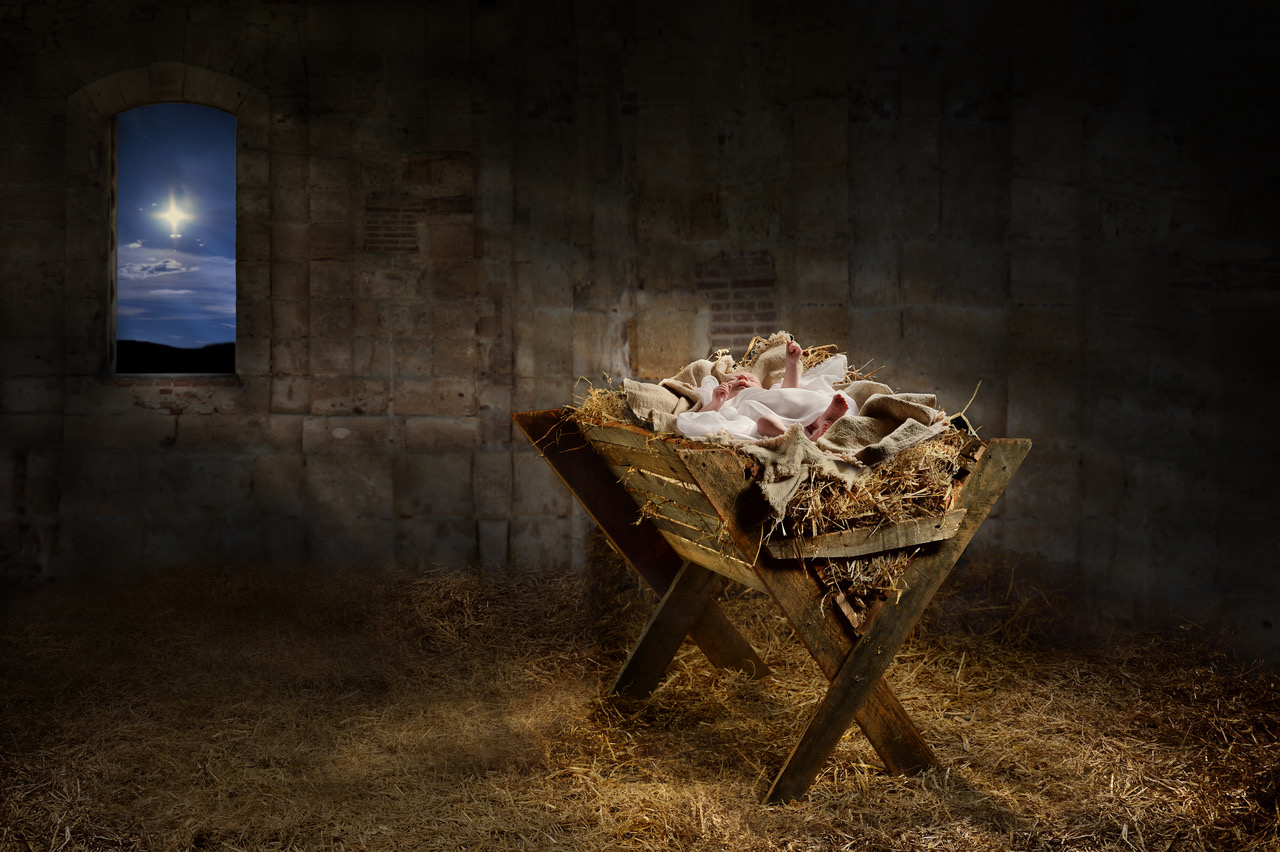filter posts:
Date
Are We Doing it For Daddy?
 It was suppertime at the Fox’s in 2001, and we were discussing the Right to Life vigil that would be held that evening around the Graham Courthouse. It was the 28th anniversary of Roe v. Wade, the Supreme Court decision which legalized abortion in the United States.
It was suppertime at the Fox’s in 2001, and we were discussing the Right to Life vigil that would be held that evening around the Graham Courthouse. It was the 28th anniversary of Roe v. Wade, the Supreme Court decision which legalized abortion in the United States.
One of the kids said to Judah, who was not sure about this vigil idea, “It’s cool, Judah! You get to hold a candle!” Another added, “And we might get our picture in the paper!” Judah was mildly impressed, but I was surprised at what I heard from my children. I responded, “Guys, the reason we do this every year is not to hold candles or because we might get our picture in the paper. If that’s why you’re doing it, I’d rather you stay home.”
There was a slight pause, and the older children looked intently at their broccoli. My problem is that even when I say the right thing (which happens every now and then), I often say it the wrong way. Thankfully, this evening was saved by my 5-year-old who was not offended by my sharp tone. Judah flashed his big brown eyes at me and asked, “Are we doing it for you, Daddy?”
Cindy said, “Oh, how sweet,” and my eyes pooled with tears at Judah’s innocence. And I thanked God for the high and holy privilege he gives us as parents, the privilege and the delight of leading children to faith and obedience.
The question Judah asked made me think about my own motives for standing at the courthouse on the anniversary of Roe v. Wade. My heart whispered in prayer, “Am I doing it for you, Lord?” Or am I going to the courthouse to set an example for my children, so that they will see that the issue of the sanctity of life is more important than my temporary inconvenience? That is a good motive, but not the best. Am I going to the courthouse in memory of the more than 60 million babies who have been aborted since 1973? Am I going to the courthouse for the more than 600,000 babies that will not see the light of day this year? To pray and work, as Job said, for the one “who has none to help him”? The boys and girls of all races that will not be able to enjoy liberty and pursue happiness because their right to life was taken away? That is a good reason to go the vigil, I decided, but not the best. Judah’s question rang in my heart: “Are we doing it for you, Daddy?”
That’s really the issue for me. I went to the courthouse Friday evening with my family because my Father is passionate for life, and I am His child. I added my little voice to the millions who were standing and praying and holding candles across the nation, hoping that the holocaust of abortion will end in our lifetime, because I believe God would have me do so. I pray often that what is acceptable in our nation as a “right to choose” will soon become an unthinkable horror. Is it a simple matter? On the one hand, no, it is not. I know the issue of abortion is volatile, with strong emotions on both sides. There are some who say that one side doesn’t care about the difficult choice of the mother. The issue of abortion divides political parties, motivates voters, and separates friends and families. Most life and death issues do. On the other hand, yes, it is simple. It is a child. It is not tissue, but a human being. A helpless human being. Stephen Schwarz wrote in his book, The Moral Question of Abortion, “Suppose, in the encounter between doctor and child [in an abortion], the child won half of the time, and killed the doctor in self-defense—something he would have every right to do. Very few doctors would perform abortions. They perform them now only because of their absolute power over a small, fragile, helpless victim.
I remember the day we lost our second born to miscarriage. The doctor explained, “We’ll never know what happened. But there was something wrong with the embryo and God decided to end its life in the first trimester.” Cindy and I wept for the son or daughter that we would not get to raise but were comforted by the assurance that our Father is in control. He is the one who gives life, and he is the one who takes life. He is the one who IS life, and that’s why I went to the courthouse and prayed. I did it for Daddy.
January 24, 2021
When Great Fear Came upon the Church and the Community
 In Acts 4 you can read about a man named Barnabas who sold a field and laid the money at the apostles’ feet. That created quite a stir, so Ananias and Sapphira (Acts 5) decided to get in on the action. They hatched a plot to sell some land, pocket part of the money, but then pretend they were giving all the proceeds to the church. Ananias must have beamed proudly as he lay the moneybag down, waiting for the praise of the Apostles. Perhaps his blood ran cold, however, when Peter said, “Ananias, why has Satan filled your heart to lie to the Holy Spirit?” Peter saw right past the pile of money and into Ananias’ heart. It had nothing to do with the money. Ananias and Sapphira had every right to keep all or part of it. The sin was hypocrisy. Ananias did not utter a word as Peter spoke. He just dropped dead at the apostle’s feet, possibly falling right on top of his money that he loved so much.
In Acts 4 you can read about a man named Barnabas who sold a field and laid the money at the apostles’ feet. That created quite a stir, so Ananias and Sapphira (Acts 5) decided to get in on the action. They hatched a plot to sell some land, pocket part of the money, but then pretend they were giving all the proceeds to the church. Ananias must have beamed proudly as he lay the moneybag down, waiting for the praise of the Apostles. Perhaps his blood ran cold, however, when Peter said, “Ananias, why has Satan filled your heart to lie to the Holy Spirit?” Peter saw right past the pile of money and into Ananias’ heart. It had nothing to do with the money. Ananias and Sapphira had every right to keep all or part of it. The sin was hypocrisy. Ananias did not utter a word as Peter spoke. He just dropped dead at the apostle’s feet, possibly falling right on top of his money that he loved so much.
Meanwhile, back at home, Sapphira was excitedly awaiting either Ananias or someone else to appear at the door. She may have imagined one of the prominent wives in the church coming over to say, “You and Ananias are such mighty pillars in the church. You are examples to all of us. Oh, I am humbled by what you have done, and I feel so selfish when I think about how little we give.” Sapphira might have imagined herself blushing and responding with, “Oh, well, you know, it is all for God. To God be the glory! Ananias and I are nothing.” But no one appeared, not even Ananias. Where is he? After three hours, Sapphira couldn’t wait any more. She marched down to the church, only to find Peter and some of the other apostles looking rather grim. And sad. No Ananias, though. Where is he?
Peter asked her, “Did you and Ananias sell the land for this price?” Sapphira might have thought smugly, Now, I am going to get what’s coming to me! That’s why Ananias didn’t come home; he wanted me to come here and receive the same reward that he received. She said yes to Peter, knowing it was a lie. That’s when her own blood ran cold, as Peter announced that the same young men who had buried her husband would be carrying her to the same place. Sapphira dropped dead.
The result of this severe mercy of God was that “great fear came upon the whole church and upon all who heard of these things.” I would say so. Not only that, “none of the rest dared join them.” Oh, there were many who believed after this and came to Jesus Christ for salvation. But those who were just interested in playing church, those who believed that Jesus was a great guy but certainly not the only way to God, those who knew they were practicing sin and loved it…they did not dare come anywhere near.
Vance Havner said about this, “There was a holy repulsion, and I know of nothing that the church needs more today. It is the last thing we think we need. We are always trying to attract. Our programs, prizes, picnics, and pulpit pyrotechnics are aimed at drawing the people in. Here was a church that made people stand back! We have catered to the world, we have let the world slap the church on the back in coarse familiarity. Here was a church that prospered by repelling!”
May God give the church what it needs today.
January 10, 2021
Teach Your Children to Pray
 It has always been interesting to me that Jesus’ disciples never asked the Lord to teach them how to witness. Or preach. Or cast out demons. They asked Him to teach them how to pray. Maybe they understood that Jesus’ intimacy with His Father was the power source. Someone has said that Jesus went from one prayer meeting to another and in between He healed the sick, preached to crowds, and even raised the dead. That’s a little simplistic. We know that on a few occasions Jesus said, “I must preach the good news of the kingdom of God.” Ultimately, Jesus came to do what the Father had sent Him to do: to lay down His life to atone for the sins of those who would believe in Him as Lord and Savior. But even there, on the cross, Jesus prayed.
It has always been interesting to me that Jesus’ disciples never asked the Lord to teach them how to witness. Or preach. Or cast out demons. They asked Him to teach them how to pray. Maybe they understood that Jesus’ intimacy with His Father was the power source. Someone has said that Jesus went from one prayer meeting to another and in between He healed the sick, preached to crowds, and even raised the dead. That’s a little simplistic. We know that on a few occasions Jesus said, “I must preach the good news of the kingdom of God.” Ultimately, Jesus came to do what the Father had sent Him to do: to lay down His life to atone for the sins of those who would believe in Him as Lord and Savior. But even there, on the cross, Jesus prayed.
Teach your children how to pray. It was our custom for many years to have family devotions that begin with reading the Bible and end with each of us praying one by one. When our children were very young, their prayers would usually go something like this. Hands folded, knees on the floor, elbows on the sofa, eyes squeezed shut, the youngest would pray, “Lord, help us to have a good day, not to get hurt, and not to fight.” That was OK. It was a child’s prayer, one that focused on comfort, safety and security. Sadly, many adults pray in those same tracks. Their words and sentences get longer and more impressive to the ear, but the requests are the same: “Lord, bless me today. Give me everything I need. Protect me from harm or even from anything hard or uncomfortable. And help me to make it safely to death one day!” No one actually prays those exact words, at least I hope not, but many pray those same themes. Over and over. Day after day.
As my children matured, I challenged them to get outside the prayer box they were in, to look around them for needs in the church, the community, or the world. Or in their own hearts. “It’s fine to pray for your own needs,” I would say. “Jesus taught us to ask for our daily bread. But He also taught us to pray for forgiveness for our own sins and for grace to forgive others who have sinned against us.” Cindy and I taught them and led by example to pray for the sick and the hurting. We taught them to pray for missionaries around the world. We taught them to pray for those who are not followers of Jesus Christ. We taught them to give God praise and thanks in prayer. My children have learned through the years that prayer is to be a delight, not a duty. We have taught them that they can pray any time and under any circumstances. Someone said once, “As long as there are final exams, there will always be prayer in school.” True. Prayer is not a ceremony that requires equipment, rituals, special clothing, or even a place. You can pray in your heart any time, and God hears.
Susanna Wesley, though mother to 19 children, found time to pray for two hours every day. David Brainerd, missionary to the American Indians in the 1700s, prayed in the snow until it melted around him. The Apostle James, beheaded by King Herod in the first century, was called “camel knees” according to legend, because of the callouses he developed through hours of prayer.
We need their kind among us again. Teach your children to pray.
January 3, 2021
How Should We Support Missionaries?
 It is one thing to “have” missionaries on your bulletin board at church. It is quite another to “support them” in a way that is consistent with what the Bible teaches. John instructs the church in his third letter to support them “in all your efforts,” and that missionaries should be sent on “their journey in a manner worthy of God.” Why? Because these “have gone out for the sake of the name.” They have left behind family and friends and comfort and security and moved, in some cases, to a place where they will face trials and suffering and sometimes even death. Not for their name’s sake, but for His.
It is one thing to “have” missionaries on your bulletin board at church. It is quite another to “support them” in a way that is consistent with what the Bible teaches. John instructs the church in his third letter to support them “in all your efforts,” and that missionaries should be sent on “their journey in a manner worthy of God.” Why? Because these “have gone out for the sake of the name.” They have left behind family and friends and comfort and security and moved, in some cases, to a place where they will face trials and suffering and sometimes even death. Not for their name’s sake, but for His.
How should we support missionaries, especially those whom we have sent out from our own church? I would suggest three things at minimum that would fill up part of what John meant by “in all your efforts.”
With prayer. John Bunyan said, “You can do more than pray after you’ve prayed, but you cannot do more than pray until you have prayed.” We are to pray first and most of all. Jesus said, “You did not choose me, but I chose you and appointed you that you should go and bear fruit and that your fruit should abide, so that whatever you ask the Father in my name, he may give it to you.” The promise to give us whatever we ask is in the context of mission. As we go and bear fruit in the mission He has given us, we can pray with confidence. That means we can and should pray with boldness for the missionaries we support, that God would protect them and provide for them. But even more importantly, we must pray that God will use them for the sake of His name.
With practical help. From a prison cell in his last months, Paul asked for three things from his son in the faith, Timothy. He asked for his cloak. Paul was cold. He asked for his parchments and books. Paul wanted to read, especially the Word of God. He asked for Timothy to come to him. Paul was lonely! We support missionaries when we write to them or skype with them. We support them when we send them supplies. We support them the best, perhaps, when we go and visit with them to encourage them and help them in the work.
With financial support. We support a family of five in Chisinau, Moldova. Let me share part of their Christmas newsletter with you:
|
|
|
|
Hudson Taylor said, “God’s work done in God’s way will never lack God’s supply.” The missionary’s job is to make sure he is doing God’s work in God’s way. But where does “God’s supply” come from? Most often, it comes from God’s people. We must make sure that we are doing our part to supply the needs of the missionaries we support. With prayer, practical help, and finances.
December 28, 2020
Jesus Preached it Down to Eleven
 Found on the internet recently: a Pony Express recruitment poster from 1860 that reads: “WANTED: Young, skinny, wiry fellows not over eighteen. Must be expert riders, willing to risk death daily. Orphans preferred.”
Found on the internet recently: a Pony Express recruitment poster from 1860 that reads: “WANTED: Young, skinny, wiry fellows not over eighteen. Must be expert riders, willing to risk death daily. Orphans preferred.”
Were I to respond in the spirit of the age I would say, “That’s narrow-minded and discriminatory.” I mean, what if I want to ride for the Pony Express and I am over 60? Or I weighed more than 300 pounds? And what’s all this stuff about risking death? No way, Jack! I want to ride but I don’t want to do anything that might risk my hairdo, much less my life and limbs. Are you really telling me that I cannot apply? Well, you will hear from my lawyer, “Mr. Express.” Count on it!
If you think that club was exclusive, you should check out Jesus’ qualifications for discipleship. He said, “If anyone desires to come after Me, let him deny himself, and take up his cross daily, and follow Me.” Not only do you have to come and risk death; if you want to follow Jesus, you have to come and die every single day.
See, here’s the truth about Jesus’ church-growth “methods.” He preached a crowd-thinning word, not a crowd-pleasing one. He told his followers that they would be dragged before the magistrates and authorities. He told them they would be hated for his sake. He told them that they would have much tribulation. Then he spoke the mother of all “anti-church-growth” messages when he said, “He who eats my flesh and drinks my blood abides in Me, and I in him.” He wasn’t talking about cannibalism there or even about the elements of the Lord’s Supper, as many have supposed. He was talking about so identifying with him that those who would follow him would take his life for their own, would lay down their desires and their plans and take up his. It was at this point that “many of his disciples went back and walked with him no more.”
Jesus did not seek a crowd. He was never interested in drawing crowds or mobs. Jesus was the leader and still is, of the remnant. He was looking for disciples, not warm bodies. He wasn’t interested in scaffolding, which is temporary support but cannot be trusted under any kind of significant load or stress. Scaffolding is up today and gone tomorrow. A scaffold will say, “Lord, we ate and drank in your presence and you taught in our streets,” but Jesus will say, “I never knew you.” Scaffolding comes and goes, blown about by the wind, but stones set in mortar are here to stay. The cornerstone, Jesus, was getting ready to lay down his life, and he was looking for some men who would lay theirs down as well. He was searching for solid stones, suitable for setting in mortar next to the cornerstone to build a building whose maker and builder is God.
Someone asked a pastor once how he was able to have such a wonderful congregation of people gathered together on a Sunday morning. They knew that it had not always been that way. In fact, when the pastor first came to the church, it was filled with turmoil and division. Now it was thriving, filled with worshipers who loved the Lord and each other. “How did you do it,” the pastor was asked. “I preached it down to four,” he replied. Jesus preached it down to eleven. The crowd wandered off, but the disciples remained. How about you?
December 21, 2020
Christmas Is Good News of Great Joy
 This is what the angel said who appeared to the shepherds on a Bethlehem hillside many years ago: ‘Fear not, for behold, I bring you good news of great joy that will be for all the people.” The good news was that the Savior had been born.
This is what the angel said who appeared to the shepherds on a Bethlehem hillside many years ago: ‘Fear not, for behold, I bring you good news of great joy that will be for all the people.” The good news was that the Savior had been born.
What’s the best news you have ever heard? Was it when the doctor said, “Good news. You don’t have cancer”? Or was it when the HR department called and said, “Good news. You’ve got the job”? Maybe it was when your future father-in-law said, “Good news. You can marry my daughter.” I know that last one seems like an anachronism, but I know for a fact that there are still young men even in this day and age who would rather ask than tell. So, what’s your best news ever? Was it when the call came that you had qualified for your dream house?
Those are all good news. But they dwell in the lower regions of what we want or don’t want, rather than in the upper region of what we desperately need. They are also temporary good news. Cancer or not, one day we are still going to die. Whether we love it or loathe it, the job will end. Marriage is wonderful, but even if you live happily, it will not be for “ever after.” You will be your wife’s brother in heaven, and she your sister. And your dream house? It will fall down either before or after you do.
That’s what makes Christmas different. The Savior who was born in Bethlehem was Christ the Lord. He came to give us what we need, not just what we want. He came to satisfy the longing that we are all born with, which he created in us. We long for the eternal. We know in our hearts, because he put it there, that this world is not all there is. In fact, we even know in our hearts that we were created for a relationship that goes beyond what a husband and wife have together, or even a parent and a child. He who made us made us for himself.
Jesus’ birth was good news of great joy. Not just for the shepherds, but for all the people. The Savior was born for people all over the world who would come and adore Him. However, His coming is great joy for “all the people,” but not for every person. That’s why the heavenly host of angels also said, “Glory to God in the highest, and on earth peace among those with whom he is pleased.” There is a somber message here, mingled with good news of great joy. The coming of the Messiah would bring peace only to those with whom God is pleased. Who does that include?
The Bible says, “Without faith, it is impossible to please him, for whoever would draw near to God must believe that He exists and that He rewards those who seek Him.” The message of Christmas is only good news of great joy to those who believe the promises of God and the testimony of his Word.
It has puzzled many that this time of the year can be the most joyful for many, and the bluest for many others. However, it is no wonder that the season of hope fails to satisfy the heart that is consumed only with what it wants and doesn’t even acknowledge what it desperately needs. It is no wonder that “good news of great joy” eludes the one who lives for the moment and never even considers eternity.
What’s the best news of all time? The Savior, Christ the Lord, has come!
December 14, 2020
God Has Given Jesus the Name above Every Name
 Here’s the name above every name in Great Britain this year: Milo. A survey conducted by a parenting website has declared the name Milo to be the most popular name for baby boys in Britain, surpassing previous favorite, Oliver. The most popular name for girls in the UK this year is Luna. Yep, parents are over the moon about that name, which passed perennial favorite, Olivia, for the first time.
Here’s the name above every name in Great Britain this year: Milo. A survey conducted by a parenting website has declared the name Milo to be the most popular name for baby boys in Britain, surpassing previous favorite, Oliver. The most popular name for girls in the UK this year is Luna. Yep, parents are over the moon about that name, which passed perennial favorite, Olivia, for the first time.
That may be so. But the name that is above every name has been given by God to Jesus. “You shall call His name Jesus,” the angel said to Joseph, “for he will save His people from their sins.” It is a name that is set apart, even by those who don’t believe in Him. Philip Yancey wrote, “Today, people even use Jesus’ name to curse by. How strange it would sound if, when a businessman missed a golf putt, he yelled, ‘Thomas Jefferson!’ or if a plumber screamed ‘Mahatma Gandhi!’ when his pipe wrench mashed a finger. We cannot get away from this man Jesus.” Or from His name. But Jesus’ name in His day would have been as ordinary then as Bob or Joe is today. This was a time of a revival of Jewish pride, and parents were naming their children after the heroes of the Old Testament again. So, Mary was named after Miriam, Moses’ sister. Joseph was named after one of the patriarchs. And even the name ‘Jesus’ was a form of the Old Testament name, Joshua, which means, “He shall save.” The thought that someone named Jesus could be the Messiah was unthinkable. For people raised in that time and in that tradition, Phillip Yancey wrote, it would have been scandalous to even consider that someone named “Jesus” could possibly be the Son of God. Jesus was just a man; he was Mary’s oldest boy, a carpenter who grew up in Nazareth, for goodness’ sake!
Paul wrote, “Therefore God has highly exalted him (Jesus) and given him the name that is above every name.” Sinclair Ferguson argues that Paul was making a clear connection between the name Jesus and the Old Testament prophecies about the Messiah. Isaiah wrote 700 years before Christ, “Truly you are a God who hides himself, O God of Israel, the Savior…For thus says the Lord…‘I am the Lord, and there is no other’… And there is no other God besides me, a righteous God and a Savior; there is none besides me… To me every knee shall bow, every tongue shall swear allegiance.”
Here’s the point: God is the only Savior, God says of Himself in Isaiah. Jesus, says Paul, is that Savior. God is the Lord before whom every knee will bow and every tongue confess, God says in Isaiah. And Jesus, says Paul, is that Lord.
This is why the birth of Christ divides time, as well as nations, even families. At his first appearance, Jesus hid himself in plain sight, as a babe in a manger. At his next appearance, Jesus will split the skies as King of kings and Lord of lords. He will not come, hat in hand, asking for us to ‘please accept him.’ He never did that in his first coming. When Jesus returns, it will be to consummate God’s perfect plan for all of mankind and judge the world in righteousness.
“When He shall come with trumpet sound, O may I then in Him be found, Dressed in His righteousness alone, faultless to stand before the throne.”
May Christ alone and his righteousness alone be yours this Christmas.
December 6, 2020
Christmas Is a Time for Memories
 We used to sleep in the same bed together, my two brothers and me, on Christmas Eve. That alone was a Christmas miracle, given the fact that the other 364 days of the year would find us plotting ways to hurt one another. I remember BB gun fights, where we were running around the woods, shooting at each other. Or we would fight from room to room in the house with spit wads, using thick rubber bands to wing them on their way. To up the ante, we decided one day to shove straight pins through the spit wads. Yep, three little angels, that’s what we were. But on Christmas Eve, we crawled into bed together and tried to go to sleep, keeping one ear tuned for reindeer hooves on the roof, and one foot ready to launch any brother who got too close.
We used to sleep in the same bed together, my two brothers and me, on Christmas Eve. That alone was a Christmas miracle, given the fact that the other 364 days of the year would find us plotting ways to hurt one another. I remember BB gun fights, where we were running around the woods, shooting at each other. Or we would fight from room to room in the house with spit wads, using thick rubber bands to wing them on their way. To up the ante, we decided one day to shove straight pins through the spit wads. Yep, three little angels, that’s what we were. But on Christmas Eve, we crawled into bed together and tried to go to sleep, keeping one ear tuned for reindeer hooves on the roof, and one foot ready to launch any brother who got too close.
One of my favorite memories was the Christmas Eve we heard the front door open, and the distinct sound of something heavy being rolled across the threshold. Grandpa never used a wheelchair so we knew it wasn’t him coming for a midnight visit. And we had no idea why Santa would be bringing gifts through the front door, when we had a perfectly good fireplace in the den. So we just lay there in bed, whispering about what it could possibly be, and daring each other to sneak downstairs to steal a glance. Nobody wanted to risk being seen by Santa, or worse by Dad, so we eventually drifted off to sleep.
One of my favorite memories of Christmas Day was the next morning when three sleepy-eyed little Fox boys found a brand new yellow mini-bike parked under the tree. We lived on two acres and had a creek behind and beside us, and empty lots and woods all around, so we could not wait to jump on the bike and start blazing trails. But first, Dad needed to give us a lesson on how not to wreck a mini-bike. This is one of my favorite memories, too, as Dad straddled that kid-sized bike with his 6’3” frame, and proceeded to explain to us young boys how dangerous a mini-bike could be. He had barely gotten the words out of his mouth about how sensitive throttles are, when the bike shot off like a rocket and threw Dad into the air where gravity began to work immediately and brought him quite unceremoniously back to the earth. The bike and Dad were perfectly unharmed, but after a few minutes my sides were killing me. Even mom got a chuckle out of that one.
Christmas is a season of giving, and the yellow mini-bike has to go down in the Fox history book as one of the best gifts we ever received. We also got exactly one of them, so we boys had to learn how to share. I have no idea how we worked that out without BB guns or bloodshed. I just remember many happy hours riding that mini-bike, and I suppose my older and younger brothers did as well.
There may not be a mini-bike under your tree this Christmas, or even a reindeer on your roof. But that’s OK, because the best gift cannot be bought in a catalog or brought down a chimney. The best gift, the only one that matters, was laid in a feeding trough in Bethlehem many years ago. Here’s what the angel who brought the news to Joseph said about the gift:
“You shall call his name Jesus, for he will save his people from their sins.”
November 30, 2020
How to Develop a Thankful Heart
 I know Thanksgiving is a few days away, but it’s really not. Not according to the Bible. The Word says these three things are the will of God for you who are in Christ Jesus: “Rejoice always, pray without ceasing, give thanks in all circumstances.” We don’t have to wait until November 26 to give thanks. Also, notice that the Bible doesn’t teach us to wait until we ‘feel’ thankful. The command is to the will, so we don’t ‘feel’ our way into giving thanks; we “give-thanks our way” into feeling grateful. I know that is bad grammar, but it is also good theology. So, the question is, why are we so often found outside His will? Put another way, what are the reasons we are not thankful? It may be that we ascribe everything that happens in our lives either to luck, to fate, to self-effort, or to a mystical combination of all three. The Bible teaches us, however, that God is the Sovereign Lord of all creation, and the giver of every good gift.
I know Thanksgiving is a few days away, but it’s really not. Not according to the Bible. The Word says these three things are the will of God for you who are in Christ Jesus: “Rejoice always, pray without ceasing, give thanks in all circumstances.” We don’t have to wait until November 26 to give thanks. Also, notice that the Bible doesn’t teach us to wait until we ‘feel’ thankful. The command is to the will, so we don’t ‘feel’ our way into giving thanks; we “give-thanks our way” into feeling grateful. I know that is bad grammar, but it is also good theology. So, the question is, why are we so often found outside His will? Put another way, what are the reasons we are not thankful? It may be that we ascribe everything that happens in our lives either to luck, to fate, to self-effort, or to a mystical combination of all three. The Bible teaches us, however, that God is the Sovereign Lord of all creation, and the giver of every good gift.
May I suggest a few practical steps we can take towards developing a heart of thanksgiving?
First, make a list of the top ten things or people on your “I am thankful” list.
Second, thank God for each one of your top ten. Each one is a work of God, whether you are thankful for His forgiveness or whether you are thankful for your wife. I love Brad Paisley’s song, “Waitin’ on a Woman.” A young man sits down at the mall next to an old man and they get to talking, since they have nothing else to do: they are both waiting on their wives who are shopping. The old man says, “Son, since 1952 I’ve been waitin’ on a woman. When I picked her up for our first date, I told her I’d be there at eight, and she came down the stairs at eight-thirty. She said, ‘I’m sorry that I took so long, didn’t like a thing that I tried on.’ But let me tell you son, she sure looked pretty, Yeah she’ll take her time but I don’t mind, Waitin’ on a woman.” Then the last verse says, “I’ve read somewhere statistics show, the man’s always the first to go. And that makes sense, ’cause I know she won’t be ready. So, when it finally comes my time, and I get to the other side, I’ll find myself a bench, if they’ve got any. I hope she takes her time, ’cause I don’t mind, waitin’ on a woman.” Hey men, maybe listening to that song once a week would help you be more grateful for your wives, even if they are the ‘never on time’ type.
Third, tell the people on your list how much you are thankful for them. They need to hear it. We need to say it. Finally, make a list of every circumstance from this past year that would never come close to making your top ten list. Maybe you had a health problem. An accident. A broken relationship. A financial setback. Even an election that didn’t go your way. Now, give thanks in every circumstance, just like the Bible says to do. We say we believe in the sovereignty of God. And that He is good and does good. Then we get sick and we cannot believe what is happening. And everything turns inward. Giving thanks in every circumstance is a way of forcing our hands to unclench, our arms to open up, and our hearts to be clear.
O Lord, you have given so much to us. Give us one thing more: a thankful heart.
November 22, 2020
We Need an Eternal Perspective
 Half of the nation was going to be upset by the outcome, no matter who was elected. Either way, let me encourage those who have an eternal perspective, that our marching orders have not changed. Because this nation was never going to be revived by elections. Or demonstrations. It can only be revived by the power of the Spirit at work in the church. Presidents can help or hurt the people they lead but they cannot save them. They cannot change their hearts. They cannot give them lasting joy and hope that does not disappoint. They can preside over a nation but only Christ can reside in the hearts of men and women whom he has redeemed. Our hope is found in nothing less than Jesus’ blood and righteousness.
Half of the nation was going to be upset by the outcome, no matter who was elected. Either way, let me encourage those who have an eternal perspective, that our marching orders have not changed. Because this nation was never going to be revived by elections. Or demonstrations. It can only be revived by the power of the Spirit at work in the church. Presidents can help or hurt the people they lead but they cannot save them. They cannot change their hearts. They cannot give them lasting joy and hope that does not disappoint. They can preside over a nation but only Christ can reside in the hearts of men and women whom he has redeemed. Our hope is found in nothing less than Jesus’ blood and righteousness.
Uzziah served as king in Judah for 52 years. In the year that King Uzziah died, Isaiah the prophet didn’t go to the bar and drown his sorrows. He didn’t go to the golf course. He didn’t go home and curl up in a fetal position. Isaiah went to the temple. He went to church, if you will, the place where the people of God gathered. And Isaiah was given a vision; he saw the Lord sitting on his throne, high and lifted up. He heard the Lord speak. He understood his calling, that the Lord was sending him to speak to the nation. The king had died. Not God. Isaiah had work to do. So do you and I.
Jesus said to his disciples, and to us, “If anyone desires to come after me, let him deny himself, take up his cross daily, and follow me.”
What does it mean to deny myself? Here’s what it does not mean. From an unknown source comes an article titled, “How To Be Miserable.” It says, “Think about yourself. Talk about yourself. Use “I” as often as possible. Listen greedily to what people say about you. Expect to be appreciated. Be suspicious. Be jealous and envious. Be sensitive to slights. Never forgive a criticism. Trust nobody but yourself. Insist on consideration and respect. Demand agreement with your own views on everything. Do as little as possible for others.”
No, Jesus taught us a different way. He calls us to deny ourselves so that in losing our life for his sake, we will find it.
“Take up your cross daily.” Let’s not trivialize the meaning here by saying things like, “Well, I have some arthritis in my shoulder that limits my golf swing, but that’s my cross to bear.” No, when Jesus told them to take up their cross, every person in that crowd would have an image flash through his mind. If a man was condemned to die on a Roman cross, the moment he was sentenced to death, if he wasn’t whipped first, he would be given a crossbeam to carry to the place of his own execution. It was a one-way trip. He would not be back. Everyone knew they would never see this individual again, at least not in this lifetime.
The follower of Jesus Christ is called to voluntarily lay down his life every day, so that he is free to think about one thing: how will he live for the sake of Christ and the Gospel that day?
“And follow me.” A disciple followed his master closely enough to the point that when you saw a disciple, you saw the master. They tried to walk like them and talk like them and gesture like them. When the world sees a disciple of Jesus Christ who is running a business, he ought to be able to say, “That’s how Jesus would run a business if he were here running a business.” That’s how Jesus would build a house or sell a product or take care of his customers or raise a child or manage a household.
How should we respond to this call to discipleship? By giving our life to serving Christ and the Gospel where we live and work and study and play. It means we will not be afraid to speak the truth about who Jesus is, that He is the Messiah, the Son of the Living God, and there is no other name under heaven given among men by which we must be saved.
That’s what we need, followers of Christ. An eternal perspective.
November 15, 2020
